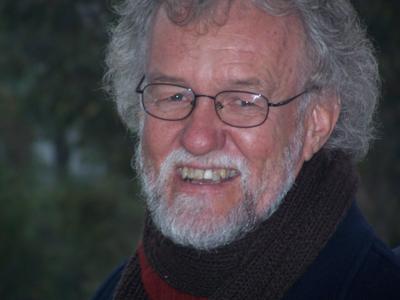NUTS AND BOLTS - by Barbara Bee © 2005
IntroductionI missed the crucial planning meeting on who should do which workshop, and I feel in consequence I’ve drawn the short straw!
‘Keeping Access and Equity Alive in VET,’ left me decidedly lukewarm as a title for a lively and vibrant workshop. I wondered if I had anything new or of value to offer you? Then I began to think a bit more deeply about not just the VET part of the course planning and implementation in Outreach, but to what extent my teaching resembles a Popular Education approach to adult teaching and learning. So I am going to try a three-pronged approach when I describe my latest AWT Outreach Course in Aged Care.
I pose three questions in relation to outcomes.
- Will the students learn new knowledge, skills and attitudes? (VET Outcomes)
- Will the students develop a broader educational understanding of equity and access? (Outreach Emphasis)
- Will the students have developed an informed, critical awareness on an important social issue in the community? (Popular Education Goal)
I leave you to decide the answers to these questions as I describe to you the nuts and bolts of carrying out an Outreach course I have planned and began in Semester II, 2005 at Sydney Institute in Outreach.
An Introduction to Aged CareTITLE OF COURSEThe program was officially titled “An Introduction to Aged Care” but was un-officially re-christened “Working With Older People”.
RATIONALE- Identified skills’ shortages, plus employment opportunities in the aged care welfare sector. (VET)
- The aged and ageing are still excluded from many areas of mainstream society. To be young is fashionable. To be old is barely to be tolerated. Could this program develop in those students undertaking it, an informed, critical awareness of how our society and communities regard and provide for the aged care? (Popular Education)
- Targeted students for the program were the mature age unemployed seeking a new career. Some are disadvantaged economically, and educationally and a couple have a disability (Outreach Target Groups)
LENGTH 16 weeks. 20 hours per week. 12 hours in house. 8 hours weekly work placement (total of 20hrs per week did not satisfy Centrelink or Job Networks in some instances).
TIMETABLE SUBJECTSCourse Timetable
Tuesday1000 - 1200 Plan and conduct Group Activities*
1200 - 1230
Lunch1230 - 1430 Conducting Recreational Activities*
1430 - 1445
Break1445 - 1630 Interpersonal and Client Communication**
Wednesday0900 - 1300 Orientation to Aged Care*
1300 - 1330
Lunch1330 - 1430 Interpersonal and Client Communication**
1430 - 1445
Break1445 - 1530 Interpersonal and Client Communication**
1530 - 1545 Non-timetable, but personal support/tutorial available
(*) Accredited modules taught by Welfare teachers
(**) Outreach modules taught by Outreach Teacher/Course Coordinator
Workplace Communication to begin in Term 4 in the 2.45pm – 4.30pm slots
8 hours’ weekly work experience timetable to be decided by student in conjunction with supervisor (eg. eight hour shift, split shift of 2 x 4hrs) and choose day to suit.
COURSE COMPLETION (OVERT)• Successful course completion will lead to a Statement of Attainment (Outreach Access).
• Pathway to Aged Care, via Welfare (or Nursing).
• Some students already offered paid employment in their work placements dependent on satisfactory course outcomes. (VET, Further Study Pathway)
COURSE COMPLETION (COVERT but SIGNIFICANT)• Ability to ‘make sense of’ and constructively reflect on and critique care of the policies and planning for the aged care in society.
• Recognise and take action against ageist stereotyping and treatment of older people both in-care and in society as a whole
• Empower residents in appropriate ways e.g. listen to and encourage their stories; invite them to join decision making process; and encourage participation in educational activities
• Recognise the validity of feelings around issues of grief, loss, death, and anger (for both aged residents and the students working with them)
TEACHERSTeam approach. Two outstanding teachers from Welfare. Outreach asked for a ‘senior’ teacher from Welfare to help us plan the course. I coordinate and teach on the course.
WORK EXPERIENCEWe did not select the residential work placements but invited the students to select their own. We provided TAFE informational/documentation.
NUTS AND BOLTS - Introductory SessionMy plan
• Engage the students immediately around issues of ageing
• Link ageing with their concrete experience, feelings, attitudes
• Break the silence – build group cohesiveness (we all teach , we all learn)
• Start the process of critical reflection and social analysis
(Popular Education)
Activity 1 Brainstorm the word ‘ageing/old’ (see diagram ‘A’).
No comment or analysis by me. I let the responses remain as they were given.
Activity 2 Small group discussion to question
‘If you look ahead to the time in your life when you will be an old person, how do you imagine you imagine you might think and feel?’
Feedback to large group (see Responses When I Am Old diagram).
Activity 3 Summary. Reflect for next session
1. What have you discovered/learned today that will make you think and feel more deeply about working with aged and ageing persons?
2. How do you think you will handle strong feelings amongst the people you will be caring for? E.g. grief. isolation. boredom. fear. Etc
3. What can we do to challenge ageist attitudes?
(i) individually; (ii ) in society as a whole
 Responses: - When I Am Old
Responses: - When I Am OldI don’t know how you say it, but it means having a good time, joy of life (joie de vivre – I wrote this on the board and everyone began repeating it because they liked what it signified.
I think about how I will cope with the process of dying, I don’t mean death itself, but getting there
The inside of me won’t match up with how I will look on the outside because I’m sure I will still be young inside.
I want my children and grandchildren around me, but I want to be independent. I don’t want to be a burden to my family.
I’ll be frustrated because when I die I’ll be leaving so much unfinished. It will all suddenly stop.
I want to live with other women in a group house and really have a good time until I die.
It’s poverty and paying the bills that I worry about. A lot of old people are very poor, but they are too proud to ask for help. I’ll be like that.
I’m scared of being shut away in a nursing home and no-one will visit me. I don’t have any family and I haven’t got any savings or superannuation so I’ll probably be on the pension. This worries me.
I feel it will be fun because I won’t be responsible any more. I can do what I like, when I like - painting, travelling, gardening, walking, but I’ll die before I finish all of these things.
I don’t want to look old or lose my sexuality. It’s happening now that I’m middle-aged. Men look through me. I hate that and I don’t want to become invisible as an older woman.
I don’t like the idea of not looking forward to the future because there won’t be one. I can only look back.
I want to be like my mum. She spends all her money on trips. She won’t be leaving us kids anything she says, but she doesn’t care. Make every day special is her motto.
I don’t want bus drivers to shut the bus doors on me when I run for the bus like they do now. They didn’t ever do this when I was a young woman.
Understanding Popular EducationMany people are probably doing popular education without knowing it. The name is really secondary. If the process is participatory, critical and supports people in organizing to change a situation, it’s popular education.
Eduardo BaezThere is no such thing as a neutral educational process. Education either functions as an instrument which is used to facilitate the integration of the younger generation into the logic of the present system and bring about conformity to it, or it becomes “the practice of freedom” the means by which men and women deal critically and creatively with reality and discover how to participate in the transformation of their world.
Richard Shaul (Introduction to Paulo Freire’s Pedagogy of the Oppressed)
Popular Education• Takes place within a democratic framework;
• Is based on what learners are concerned about;
• Poses questions and problems;
• Examines unequal power relations in society;
• Encourages everyone to learn and everyone to teach;
• Involves high levels of participation;
• Includes and values people’s emotions, actions, intellects and creativity;
• Uses various activities; and
• Strengthens communities.
A model/theory of Popular Education can be described as a cycle of stages which:
• Begins with people’s own experience;
• Moves from experience to analysis;
• Moves from analysis to research;
• Moves from research to collective action to change an oppressive situation; and
• Reflects on and evaluates its own process.
Adapted from Popular Education Index Introduction,
UTS, Wednesday, 31 December 2002
The fatal pedagogical error is to throw answers, like stones, at the heads of those who have not yet asked the questions.
Paul Tillich Theologian and Educator
People remember:• 20% of what they hear;
• 40% of what they hear and see; and
• 80% of what they discover for themselves.
Rich Arnold and Beu Burke (Eds), A Popular Education Handbook
Discussion QuestionsCommunity based (Popular) education: -
- Empowers individuals
- Strengthens communities which are disadvantaged or lack access and equity in mainstream life
- Begins where learners are at and negotiates the parameters of learning
- Uses strategic (dynamic) questions to direct learning
- Poses problems and encourages critical analysis and reflection as research tools
- Uses a variety of technical teaching/learning styles and techniques
- Promotes active learning leading to action and change
- Confronts social inequality and justice
1) To what extent do your Outreach programs in your local area match the criteria for popular education?
2) In your view, is the ‘trickle down’ theory, (i.e. the belief that if you empower individuals it will have a flow an effect in strengthening communities) successful doing this?
3) How relevant to Outreach access and equity programs and strategies is the construct of ‘ emotional intelligence ‘. What do you think it means in the context of empowering individuals and communities.
4) Do you have any conflict between your role as a Community educational program provider, responsive to the needs of your local population, and the prevailing vocational skill’s emphasis in TAFE courses? How do you resolve problems and/or do both?
5) There is a general feeling that many traditional grass roots democratic freedoms are under attack in Australian society at this time, particularly in relation to race issues and social injustice. Do you think there is responsibility for Outreach to provide a platform and place for a critique of these issues and how would you plan such a program as it relates to your particular community.




















